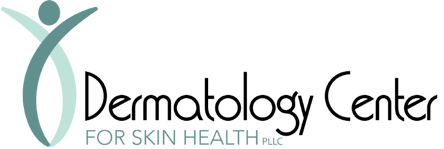Rosacea
What is rosacea?
Rosacea is a chronic, inflammatory skin condition that causes redness and visible blood vessels typically on the face. This condition can begin in people who blush or flush more easily. If the tendency to blush or flush more easily is left untreated, it can lead to other symptoms.
What are the symptoms of rosacea?
What are the causes of rosacea?

What are the symptoms of rosacea?
- Facial redness, flushing, visible blood vessels
- Acne-like breakouts
- Thickening of the skin
- Eye Involvement includes a burn or sting, dryness and itching of the eyes
What are the causes of rosacea?
While the cause of rosacea can’t be determined, there are many theories including:
- Genetics
- Environmental factors
- Vascular and inflammatory factors
- Skin damage due to exposure of ultraviolet (UV) radiation
How is rosacea diagnosed?
While there are no tests to diagnose rosacea, your dermatologist will be able to give you a physical examination and determine the diagnosis. On occasion, your dermatologist may order a skin biopsy.
How do dermatologists treat rosacea?
There are four types of rosacea. During your appointment, your dermatologist will diagnose the type of rosacea you have and treat it based on your symptoms.
At the Dermatology Center for Skin Health, PLLC, we are dedicated to providing education and prevention information for the types of rosacea. Use these three tips to help minimize flare-ups:
- Know your triggers. Triggers could include exposure to the sun, increased emotions like stress, drinking, cosmetic products, medications and more.
- Protect your skin. Those who have rosacea are more sensitive to the sun. To minimize a flare-up, avoid the sun around noon, wear appropriate sunblock and use clothing like hats, long sleeve shirts and glasses as a cover-up device.
- Have a good skin care routine that is friendly to rosacea. Many cosmetic products can irritate your skin if you have rosacea. If you wear products that need to be scrubbed off harshly, this can cause a flare-up.
After your dermatologist has talked with you about the precautions you can take to prevent flare-ups, they will also discuss your course of treatment based on the type of rosacea you have.
Four types of rosacea and courses of treatments:
Erythematotelangiectatic rosacea, also known as ETR, causes redness and flushing in the face, as well as visible blood vessels.
Treatments
- Trigger management and prevention
- Use skincare products such as green-tinted make-up
- The recommendation of topical medications such as brimonidine (bri-moe-nə-dean) gel
Papulopustular rosacea is characterized by swelling and acne-like breakouts, is most common in middle-aged women.
Treatments
- Trigger management and prevention
- Use Skincare products
- Oral and topical medications
- Metronidazole
- Azelaic acid
- Permethrin cream
- Low dose antibiotics
- Vascular laser treatments utilizing the Vbeam Perfecta and light devices such as photodynamic light therapy (PDT)
Phymatous rosacea, a rare type of rosacea, is characterized by thickened skin that has a bumpy texture.
Treatments
- Oral medication called Isotretinoin
- Surgical intervention in severe cases
Ocular rosacea is a type of rosacea that affects the eyelids and causes the eyes to be red and irritated.
Treatments
- Warm compresses
- Cleansing with a gentle eye cleanser
- Using eye drops and eye medication
- Oral antibiotic
- Referral to an ophthalmologist for a check-up if you have moderate or severe ocular rosacea
At the Dermatology Center for Skin Health, PLLC, we also offer a Sensitive Skin Care System for those who want a full skin care routine. This system includes:
- Ultra Gentle Cleanser: This light foaming cleanser is soap-free, is ideal for all skin types and can be used in the morning and evening. It contains liposome-encapsulated vitamins and has a light lavender scent.
- P3 Antioxidant Cream: Our Triple Antioxidant Cream combines the power of 90 percent green tea polyphenols, caffeine USP and resveratrol to give our patients unprecedented antioxidant protection. This product should be used in the morning.
- Physical Sunscreen: This elegant sunscreen provides superior broad-spectrum SPF 50+ UVA & UVB protection. This should be used in the morning.
Additionally, this system can also include Nourish and Repair Cream:
- Nourish and Repair Cream: This decadently rich, restorative night cream provides intense moisturization and age-defying benefits, nourishing dry skin back to optimum health.
Results for people who have rosacea
While there isn’t a cure for rosacea, patients can manage it with the help of a dermatologist. Lifestyle changes, as well as medications, can help you prevent flare-ups or decrease the possibility of the condition to worsen.
For more information about rosacea, you can visit the American Academy of Dermatology’s Rosacea Resource Center here.

